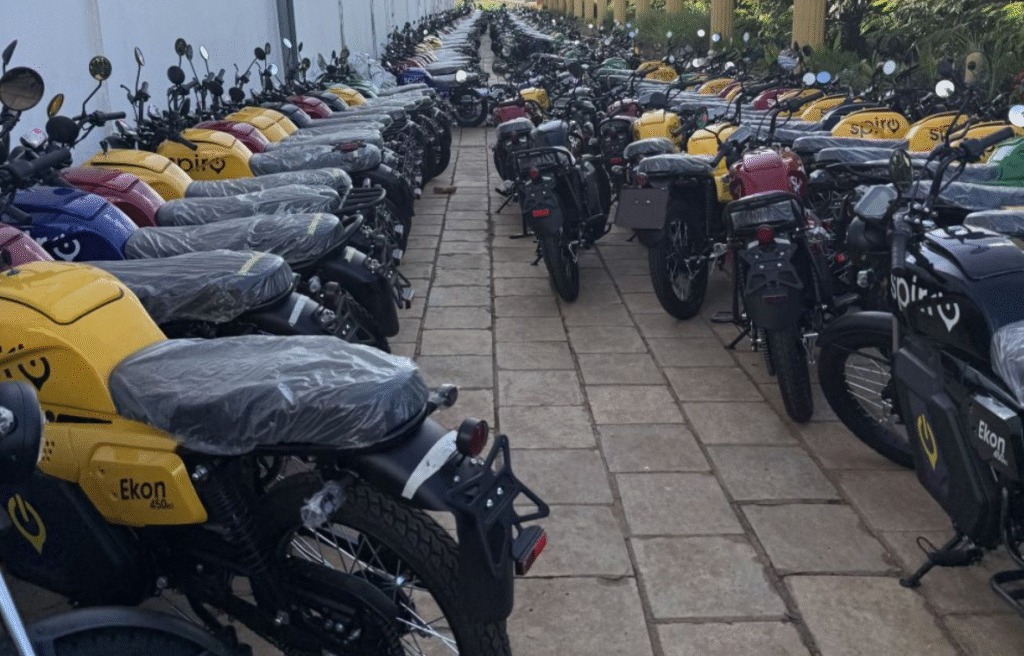Electric mobility firm Spiro Rwanda is celebrating its second anniversary, marking a significant milestone in its mission to drive sustainable transportation and inclusive economic growth across the country.
Since launching in 2023, the company has rapidly scaled its operations, deploying over 1,500 electric motorcycles across Rwandan roads—a figure expected to surpass 2,000 by next month. Beyond numbers, the milestone reflects a broader transformation in the local transport sector and a strong alignment with Rwanda’s clean energy ambitions.

“This anniversary is more than a number. It reflects the trust we have earned in the community and the strength of our brand on the ground,” said Arunkumar Bhandari, Spiro Rwanda’s Country Head.
A key element of Spiro’s success lies in its shift toward local operations. With electric bikes now being assembled in Kigali—and plans to launch full-scale manufacturing underway—the company has created more than 300 jobs, spanning both technical and administrative roles. Notably, women make up 40% of Spiro’s workforce, challenging gender norms in the male-dominated automotive industry.
“We are proud of the growing number of women in our technical and operational teams. This isn’t just a win for Spiro; it’s a statement about gender inclusion and the power of ESG values in action,” Bhandari said.
Looking beyond the capital, the company has embarked on an ambitious expansion plan targeting secondary cities including Muhanga, Kayonza, Rwamagana, Rusizi, and Musanze. The move is intended to broaden Spiro’s market reach while deepening its impact in underrepresented communities.
Youth empowerment and skills development also form a core part of the company’s strategy. Through a forthcoming initiative dubbed “Spiro Academy,” the company plans to collaborate with universities and government institutions to train young people—particularly women—for technical roles in the growing electric vehicle sector.
“We’re building capacity not just for Spiro, but for the entire Rwandan manufacturing landscape. We don’t want to import talent; we want to grow it here,” Bhandari explained.
Spiro’s expansion is closely aligned with government policy, particularly Kigali’s recent ban on the registration of internal combustion engine motorcycles—a move aimed at reducing emissions and advancing sustainable urban development. The company’s electric bikes are being positioned as a cleaner, cost-effective alternative that supports Rwanda’s broader climate and development goals.

“Our work is aligned with the government’s clean mobility agenda. We’re not just a business—we are a partner to Rwanda’s green future. This journey has only been possible thanks to the government’s goodwill, incentives, and backing,” Bhandari said.
The impact of Spiro’s presence is already evident at the grassroots level. Jean De Dieu Ndatimana, Spiro’s first customer in Rwanda, described how owning an electric bike has transformed his life.
“Initially, we didn’t know much about Spiro, but when we saw its agenda—especially its focus on protecting the environment—we embraced it,” Ndatimana said. “I’ve used the income from my partnership with Spiro to educate my child and start a chicken project at home. It has changed my life.”
As it looks to the future, Spiro Rwanda says it remains committed to leading the electric mobility revolution while championing local empowerment, green innovation, and inclusive development.











